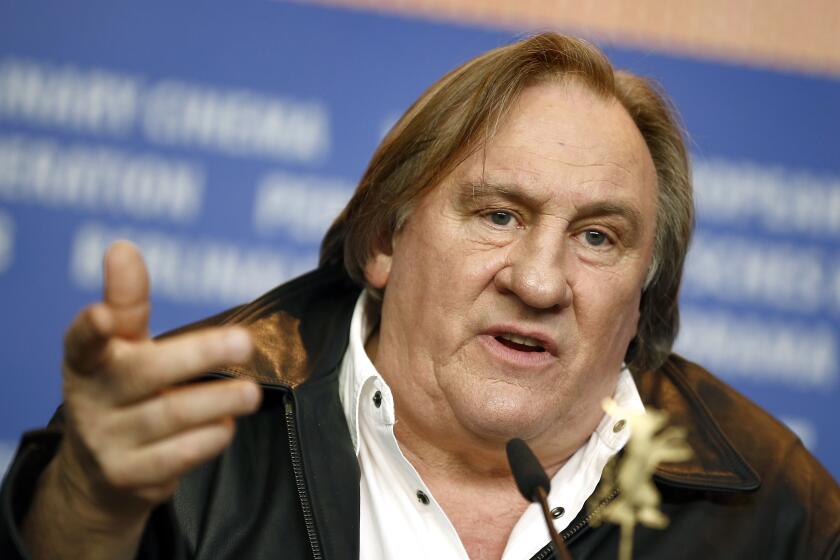Preaching the power of forgiveness
One is an Armenian American priest who resides in Pasadena, the other a Rwandan minister who lives half a world away in Kigali. Across culture and distance, however, Father Vazken Movsesian and Benjamin Kayumba share a powerful if tragic bond: their peoples’ traumatic legacy of genocide.
Movsesian lost dozens of relatives, including a grandfather, during the early 20th century massacre of about 1.2 million Armenians under the Ottoman Empire, which became the modern republic of Turkey.
For Kayumba, the scars are more recent. He lost 152 relatives, including both parents, during the 1994 slaughter of more than 800,000 minority Tutsis and moderate Hutus by Hutu extremist militias.
The men also share a conviction: that only forgiveness can ultimately heal themselves and their communities.
It’s a difficult journey. During an interview this week, Kayumba recalled that his mother was stripped naked, beaten, stabbed through the chest and left to die on a road until dogs came to eat her flesh. In time, Kayumba learned to forgive her murderer, and the anger that weighed Kayumba down vanished.
“From that night, I was free,” he said.
Kayumba and Movsesian will share that lesson today at a “forgiveness forum” carefully scheduled for July 7, 2007; it’s a symbolic way of following Jesus’ exhortation to forgive “not seven times but seven times 77,” according to the ancient Armenian Orthodox translation of the Bible.
The forum at All Saints Episcopal Church in Pasadena, organized by Movsesian’s In His Shoes Ministries, will also feature other speakers and artists on the forgiveness theme, including a Latina mother who met and forgave an Armenian gang member who killed her son.
Movsesian said his message has drawn opposition from some Armenian Americans. But he said he intends to keep preaching unconditional Christian forgiveness, following Jesus’ actions on the cross.
“I’ve forgiven the Turks,” he said. “Now I can move on with my life.”
The two men crossed paths for the first time last year. Movsesian journeyed to Rwanda at the invitation of Donald Miller, a USC professor of religion and sociology who has co-written a book on the Armenian genocide and is compiling an oral history of Rwandan survivors.
Movsesian said the trip immediately produced powerful emotional moments. After arriving in Kigali, the group went to visit a mass grave for 260,000 victims. At the Genocide Museum, Movsesian said, he heard story after story of survivors -- how Tutsi women escaped Hutu soldiers by jumping into the Nile River, for instance.
Suddenly, Movsesian said, it hit him. His grandmother had told of Armenian women eight decades earlier jumping into the Euphrates River to escape the Turks. He said he began “crying like a baby.”
“We haven’t changed,” Movsesian said in an interview this week, shaking his head. “Nothing has changed.”
Shortly after his visit to the Genocide Museum, he met Kayumba, a field activities coordinator for the Kigali-based Solace Ministries, a faith-based nonprofit organization offering counseling, child care, medical aid and other services for widows and orphans. Sharing their faith and family stories, the two men also discovered common convictions about forgiveness.
For Movsesian, the ideas about forgiveness first came in 2005 as he planned his ministry’s commemoration of the 90th anniversary of the Armenian genocide, observed each year on April 24.
The Armenian American community has protested to the Turkish government, which denies a genocide took place, pushed for a presidential resolution on the issue and held annual memorials.
“We’ve done everything but what we’re supposed to do as Christians -- we haven’t forgiven,” Movsesian said.
That year, he began preaching that message -- taking care to emphasize that forgiving does not mean forgetting -- and took young members of his ministry to the desert to form a human chain symbolizing forgiveness.
For Kayumba, the transformative moment came unexpectedly. Two months after the genocide had ended, he drove from Kigali to his family’s village to face his mother’s killer. Kayumba learned his identity through other villagers. The two men had grown up together. When he saw the man walking along a road, Kayumba said, his anger surged and he tried to run the man over.
The young man dived into a ditch, unharmed. As Kayumba jumped out of the car and made for the trembling man, he said, a voice filled his head.
“Don’t take revenge,” said the voice he identifies as the Holy Spirit. “Revenge is mine.”
Kayumba said he looked into the eyes of his mother’s killer. The man did not ask for forgiveness, but Kayumba did -- for trying to kill the man. Kayumba offered absolution as well. His mother’s murderer could go. Kayumba had forgiven him.
“The anger, frustration and trauma was totally gone,” Kayumba said. “Instead, I immediately felt relief, peace and love for this person. That’s why I say forgiveness is for us, our own benefit. Hatred and anger can kill you.”
Whether the urge to kill is hard-wired into the human heart or not, as one genocide seems to give way to another, the two men prefer to believe in hope.
“We want to end this,” Movsesian said. “We don’t want to have to come back and talk about genocide again.”
But work remains to be done, Kayumba and Movsesian say. The priest’s In His Shoes Ministries, along with All Saints Episcopal Church’s New Vision Partners ministry, is coordinating donations for Kayumba’s Solace Ministries.
They are also sharing ideas about how to take action against another genocide -- in the Darfur region of Sudan.
--
More to Read
Start your day right
Sign up for Essential California for news, features and recommendations from the L.A. Times and beyond in your inbox six days a week.
You may occasionally receive promotional content from the Los Angeles Times.







